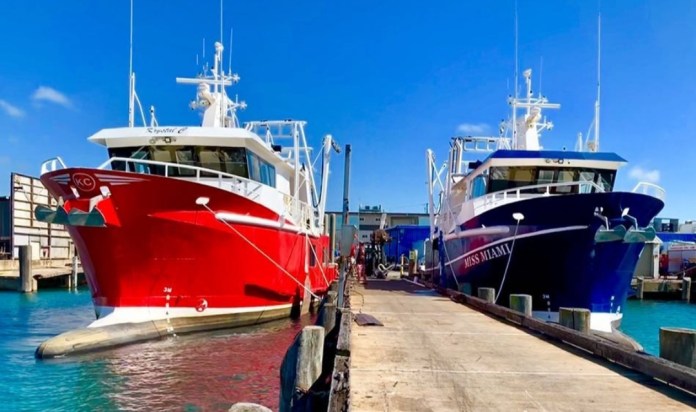
By Karen Bong
KUCHING, May 25: Sarawak will embark on issuing its own deep sea fishing license so as to safeguard the interests of Sarawak under the Malaysia Agreement 1963 (MA63).
Minister for Modernisation of Agriculture and Regional Development Dato Sri Stephen Rundi Utom informed today that a committee will be set up to approve the issuance of the deep sea fishing license in Sarawak.
“The Federal government through the Department of Fisheries (DOF) Malaysia director-general has recently agreed to empower the DOF Sarawak director to approve the license.
“The committee will be jointly chaired by the DOF Sarawak director and the permanent secretary of my Ministry,” he said when delivering his winding-up speech in the Sarawak Legislative Assembly (DUN) Sitting today.
In addition, Rundi emphasised that the government is planning to establish the Department of Fisheries Sarawak (DOF Sarawak) to accelerate and regulate the development of the fisheries industry in the State.
“Currently, the development of inland fisheries comes under the Department of Agriculture Sarawak, while marine fisheries is managed by the DOF Malaysia.
“The proposed establishment of DOF Sarawak is expected to drive the development of the fisheries industry towards making Sarawak as a major fisheries production hub in the region,” he added.
Rundi highlighted that Sarawak has a huge inland water body with almost 150,000 hectares that can be developed for commercial aquaculture projects to generate export earnings.
“To date, the total fisheries production land area is estimated to be around 1,233 hectares involving 8,273 licensed ponds. There are also around 16,000 cages in our lakes and rivers with an estimated average annual production of over 9,800 metric tonnes.
“Currently, there are 4,302 registered fisheries players including 52 licensed shrimp farmers in Sarawak.
“In 2020, Sarawak exported 4,345 metric tonnes of shrimp with a value of RM109 million to major countries such as Australia, New Zealand, Japan, China, Singapore, Middle East Countries and European Union,” he explained
One of the major initiatives to develop commercial aquaculture projects, he said, is through the establishment of Aquaculture Industrial Zone (AIZ) which is aimed at providing designated areas for both lands and water bodies to develop the fisheries sector away from traditional practices towards larger commercial ventures that will be enabled by the private sector.
“The promoted commercial aquaculture species include freshwater fish such as tilapia and high-value indigenous fish including Empurau and Semah, as well as marine species such as crustaceans which comprise white shrimp and tiger prawn, and finfish comprises sea bass and grouper,” he shared.
To date, he said there are three highly potential areas with an estimated size of 2,430 hectares that have been developed in various stages, namely AIZ Batang Ai for red tilapia production, while AIZ Sundar Awat-Awat and AIZ Rambungan are for shrimp and seabass production.
In AIZ Batang Ai, there are around 136 smallholders and a leading private company with 4,000 cages, processing, storing and fish fry production facilities with an estimated RM10 million investment value.
In view of the huge global market for shrimp and other fisheries products, Rundi said the government will continue to actively pursue this industry with the target of developing around 7,000 hectares of land to achieve export earnings of RM1 billion from fisheries and aquaculture industry by 2030. — DayakDaily






